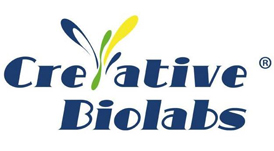Rising Interest in Plant-Derived Nanocarriers Drives Creative Biolabs’ New Focus on Vegetable-Based Exosomes
New York, USA – November 26, 2025 – With their natural origin, low toxicity, structural stability, and edible properties, plant-derived exosomes are emerging as a novel delivery platform gaining significant attention across the global scientific community. Creative Biolabs has placed particular emphasis on the application potential of vegetable-derived exosomes in drug delivery, inflammation regulation, and regenerative medicine.

The head of the exosome R&D team at Creative Biolabs noted, “Exosomes derived from plants are so much more than ‘microvesicles isolated from food.’ They contain complex combinations of bioactive molecules from different plant tissues, they have cross-species regulatory potential, and there are possibilities for engineering modifications. We are getting more inquiries from scientists who are looking at not only how they act in their natural form but also how to change them to nanotechnologies for preclinical use.”
Among various plant-derived models, ginger-derived exosomes have received particular attention due to their high stability, ease of large-scale preparation, and richness in bioactive components. According to Creative Biolabs, ginger-derived exosomes contain molecules with anti-inflammatory, antioxidant, and immunomodulatory properties. Evidence from in vitro and animal studies suggests their potential roles in regulating intestinal inflammation, modulating the tumor microenvironment, and serving as candidates for oral drug delivery.
The scientist said, “One of the benefits of ginger-derived exosomes relative to other plant-derived exosomes is the increased stability in the gastrointestinal environment; thus, they would be an ideal natural oral delivery vehicle. We are getting feedback from clients wanting to combine ginger-derived exosomes with siRNA, miRNA, or small molecule therapeutics to improve tissue penetration and bioavailability.”
In addition to ginger-derived exosomes, carrot-derived exosomes also demonstrate distinct value in regenerative medicine and disease modeling, owing to their antioxidant composition and protective effects on cardiomyocytes and neuronal cells. Carrot-derived exosomes have shown the ability to reduce cellular damage under oxidative stress and improve mitochondrial function in certain models, suggesting potential relevance to myocardial ischemic injury and neurodegenerative diseases.
The scientist added, “The protective effects observed in oxidative stress models have opened the door for carrot-derived exosomes in regenerative applications. Although this research is at a relatively early stage, we have demonstrated the positive influence on cardiac and neuronal cells on several occasions, increasing confidence to advance plant-derived nanocarriers for regenerative medicine.”
Creative Biolabs is also highlighting tomato- and turmeric root-derived exosomes in its technology portfolio. Future research on plant-derived exosomes will focus on two main areas: discovering different unique bioactive molecules and delivery properties of various plant tissues, and advancements in standardized engineering processes to utilize exosomes to transport nucleic acids, proteins, or small molecules—ultimately experiencing the dual benefit of natural and engineerable.
About
Creative Biolabs will continue to optimize its suite of exosome isolation, purification, characterization, and engineering tools, and it will work with clients to investigate their use in cancers, inflammatory ailments, oral delivery, cardiovascular research, and neurological applications.
Media Contact
Company Name: Creative Biolabs
Contact Person: Candy Swift
Email: Send Email
Phone: 1-631-830-6441
Country: United States
Website: https://www.creative-biolabs.com/exosome


